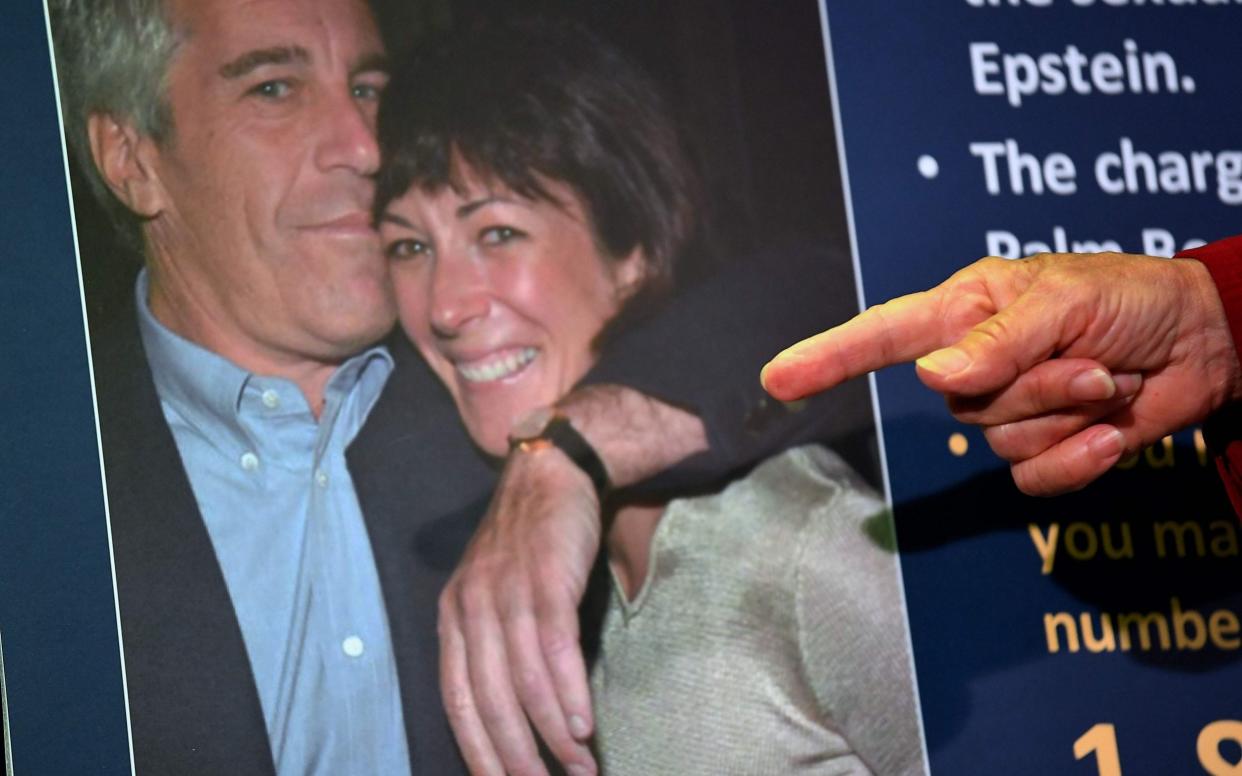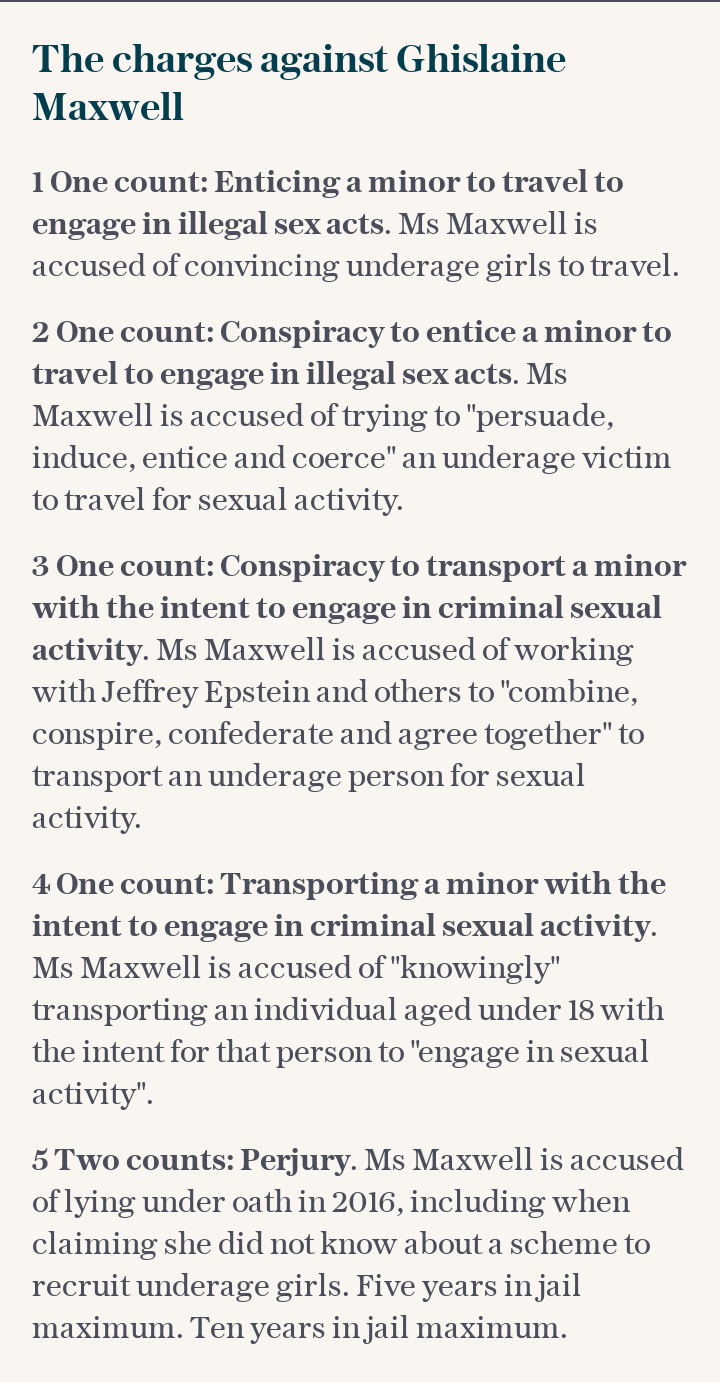Ghislaine Maxwell judge redacts private information, saying it would cater to a craving for the 'sensational and impure'

Ghislaine Maxwell’s private life contains revelations that should not be made public because they would "merely serve to cater to a craving for that which is sensational and impure,” a judge has ruled.
The socialite, who is awaiting trial on multiple charges relating to the sexual abuse of young women and girls, applied to have portions of her interview transcripts redacted, citing privacy concerns.
In a ruling made on Thursday, Judge Alison Nathan agreed to not make the interviews public, saying: “Those portions of the transcript, which were redacted in the civil matter, concern privacy interests and their disclosure would merely serve to cater to a craving for that which is sensational and impure.”
It is not known exactly what revelations have been redacted, but in previous requests, Ms Maxwell has sought to protect details about consensual sexual relationships with other adults.
In January, Loretta Preska, the federal judge in the civil case, ruled that these details remain private.
“Although the prurient interest of some may be left un-satiated as a result, Ms Maxwell’s interest in keeping private the details of her sexual relationships with consenting adults warrants the sealing of those portions of her testimony,” she said.

The ruling made in the criminal case by Judge Nathan says: “Exhibit 1 contains a single redaction—the name of a third party—and the Court concludes that that individual’s personal privacy interests outweigh the presumption of access that exists as to that limited portion of the exhibit.
“The proposed redactions to Exhibit 7 are similar in that they seek to protect from public access only the names and contact information of third parties. Here, too, the interest in protecting the safety and privacy of those individuals outweighs the presumption of access that attaches to those documents.”
Ahead of the much-anticipated trial scheduled for July, Ms Maxwell’s legal team filed 12 motions requesting the court dismiss all charges related to her alleged role in recruiting young girls for her former partner, the billionaire paedophile Jeffrey Epstein.
The government responded with an “omnibus memorandum of law” opposing Ms Maxwell’s motions, all of which were filed under seal pending rulings on the redactions.
The government argued that its redactions were required in order to “protect the integrity” of its ongoing criminal investigation into Ms Maxwell and to protect the privacy interests of third parties.

The 59-year-old is currently in a New York jail, and has made a number of unsuccessful attempts to be released on bail, while her family has branded the US legal system “bizarre and cruel”.
Ms Maxwell is in the process of selling her Belgravia home to fund her legal defence.
The house on Kinnerton Street is where one of Epstein’s accusers, Virginia Roberts Giuffre, alleges she was brought in 2001 and forced to have sex with Prince Andrew when she was 17, which he vehemently denies.

